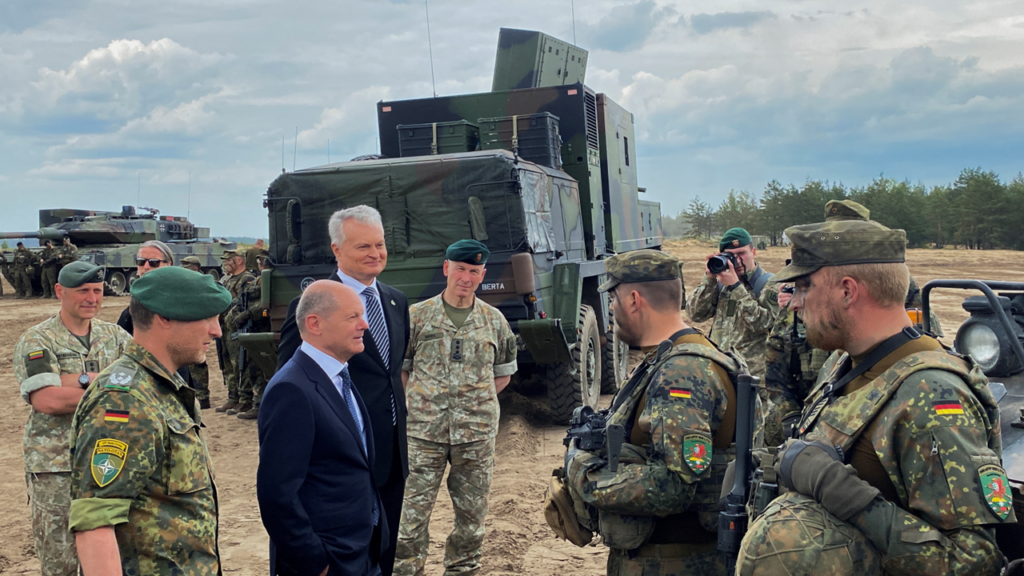
In a significant move amid the ongoing conflict between Russia and Ukraine, Germany has announced its decision to deploy troops to Lithuania, raising expectations for other NATO nations to follow suit. The move comes as a response to Russia’s war of aggression against Ukraine, marking a turning point in security policy.
Germany’s Federal Ministry of Defence revealed on Monday that it had signed a deal with Lithuania to station a Bundeswehr brigade in the region. The primary objective is to deter Russia and protect NATO alliance territory. The announcement underscores Germany’s commitment to solidarity with its NATO partners and serves as a flagship project in response to Russia’s aggressive actions.
The two-year-long war between Russia and Ukraine, initiated by President Vladimir Putin’s “special military operation” in February 2022, has seen significant territorial shifts. However, as Ukraine’s counteroffensive faces challenges with the onset of a harsh winter, experts predict a continued stalemate.
Benjamin Tallis, a senior research fellow for the German Society of Foreign Policy, emphasized that while Germany’s troop deployment is a positive step, stronger commitments from allies are essential for effective deterrence. He suggested similar deployments in Estonia (with the UK as the framework nation) and Latvia (led by Canada) to strengthen NATO’s defense capabilities.
Edward Hunter Christie, a senior research fellow at the Finnish Institute of International Affairs, commended Germany for leading by example and called for the UK to match Germany’s commitment in Estonia.
Before Germany’s announcement, NATO had already increased its military presence in the eastern part of the alliance territory in response to Russia’s aggressive actions. The organization reinforced existing battlegroups and established four more multinational battlegroups in Bulgaria, Hungary, Romania, and Slovakia.
Germany’s contribution goes beyond troops; it was previously urged to provide Leopard 2 tanks to Ukraine. In September, Ukraine’s Defence Ministry shared a video of Leopard 2 tanks received from Germany, emphasizing their impact on the conflict.
As NATO nations evaluate their responses to the evolving situation, Germany’s proactive approach sets a precedent for increased cooperation and burden-sharing among allies to strengthen the alliance’s deterrence capabilities in the face of the Russian threat.

I’m not that much of a internet reader to be honest but your sites really nice, keep it up! I’ll go ahead and bookmark your website to come back later. All the best